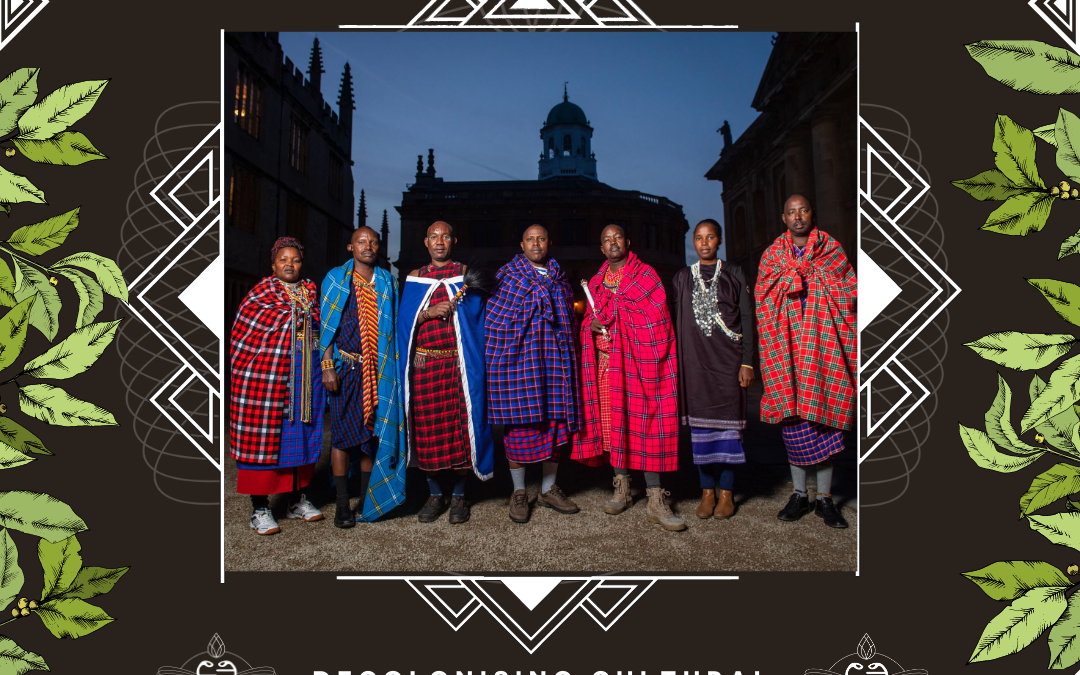The Bahá’í Faith, with its profound principles of unity and the inherent dignity of all humankind, offers a compelling framework for examining the pervasive issue of cultural colonialism and its implications for Indigenous spiritual traditions. Cultural colonialism represents a complex interplay of dominance, wherein the cultural narratives, values, and beliefs of one group impose themselves upon another, often leading to the erosion of indigenous identities. In addressing this issue, the Bahá’í teachings illuminate pathways toward reconciliation, respect, and the preservation of the rich tapestry of human spirituality.
At the psychological and spiritual core of cultural colonialism lies the concept of superiority, where dominant cultures devalue the beliefs and practices of Indigenous peoples. This paradigm not only fosters systemic oppression but also engenders a profound disconnection from cultural roots. Bahá’í teachings explicitly advocate for the recognition of the intrinsic nobility of every individual, regardless of their background. The principle of the oneness of humanity, central to Bahá’í philosophy, posits that every person is worthy of respect and celebration, thereby rejecting any notion that cultural hierarchies should dictate spiritual validity or legitimacy.
Examining Indigenous spiritual traditions through a Bahá’í lens reveals a multitude of interwoven themes—unity, resilience, and the sanctity of creation. Indigenous spiritualities often emphasize interconnectedness, recognizing that all elements of existence are interrelated. This concept resonates deeply with Bahá’í principles, which emphasize that nature and spirituality are inextricably linked. By embracing the beauty and depth of Indigenous belief systems, Bahá’ís affirm that each culture contributes to the enrichment of the human experience, enhancing collective understanding of the divine.
Crucially, the Bahá’í Faith promotes an inclusive approach to spirituality that transcends cultural boundaries. The essence of Bahá’í teachings advocates for dialogue among faiths and traditions, fostering environments where diverse beliefs can coexist harmoniously. This is particularly pertinent for Indigenous communities, whose spiritual narratives often embody unique worldviews shaped by ancestral connections to the land. Encouraging dialogue not only validates Indigenous experiences but also empowers these communities to reclaim and revitalize their spiritual expressions, counteracting the effects of cultural colonialism.
Moreover, the concept of justice is deeply embedded within Bahá’í teachings, urging adherents to actively combat inequalities and injustices. This facet of Bahá’í thought aligns well with the struggles faced by Indigenous peoples, who often contend with systemic disenfranchisement. The Bahá’í commitment to social justice compels followers to advocate for the rights of Indigenous populations, striving to dismantle barriers that perpetuate cultural erasure and promoting policies that recognize and celebrate Indigenous spiritual practices.
Beyond advocacy, the Bahá’í community’s approach to education provides a critical lens through which the preservation of Indigenous knowledge can be explored. Bahá’ís are encouraged to engage with educational initiatives that respect and honor the wisdom of Indigenous traditions. By integrating Indigenous perspectives into curricula, the Bahá’í community can facilitate a deeper understanding of cultural diversity and historical context. This pedagogical shift not only fosters appreciation but also counters the narratives that have historically marginalized Indigenous ways of knowing.
Furthermore, the Bahá’í teachings on the transformative power of love and compassion echo strongly in contexts of cultural colonialism. Love, as a universal force, has the capacity to bridge divides and foster mutual respect. In this regard, Bahá’ís are called upon to cultivate compassionate relationships with Indigenous communities, recognizing their stories and spiritual practices as vital threads in the larger fabric of humanity. Such a commitment to love entails active listening and a willingness to engage with Indigenous narratives on their terms, acknowledging the sovereignty of their voices.
What emerges from this thoughtful exploration of cultural colonialism and the Bahá’í perspective is a robust framework for engagement that honors the dignity of Indigenous traditions while promoting communal healing. The interconnectedness of all spiritual traditions suggests that diversity enriches the human condition, allowing for a broader appreciation of the divine. In the face of historical injustices, Bahá’ís are encouraged to pursue paths of reparative action, ensuring that cultural expressions are not merely tolerated but cherished as essential components of human spirituality.
In recognizing cultural colonialism, Bahá’í teachings invite a profound shift in perspective. This is not merely an academic exercise; it is an urgent call to action. By championing the rights of Indigenous populations and nurturing their spiritual traditions, Bahá’ís can play an instrumental role in fostering a more equitable society. Each community, with its unique customs and beliefs, contributes to the vast mosaic of faith and spirituality. Embracing this diversity is a testament to the teachings of Bahá’u’lláh, urging humanity to unite in the face of adversity through understanding, compassion, and a shared commitment to justice.
As we navigate the complexities of cultural colonialism, the Bahá’í perspective elucidates pathways toward reconciliation and respect for Indigenous spiritual traditions. This journey requires introspection, informed action, and a collective recognition of the invaluable contributions of every culture. Ultimately, it is an invitation to explore transformative dialogues that uplift the human spirit and promote a more harmonious coexistence across the globe.
